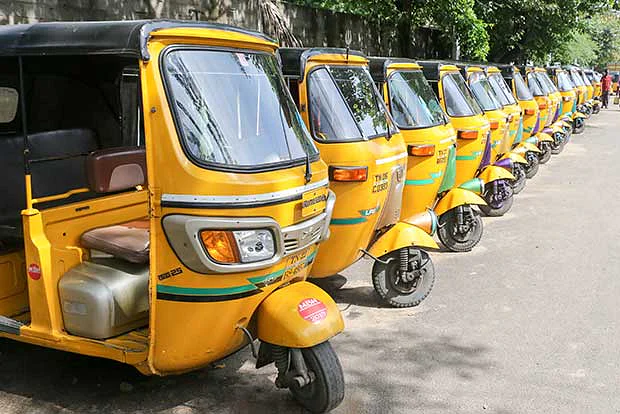Making rickshaws friendly again
The drivers had requested the government to come up with a State-run app that would levy 15% commission per ride.

The humble autorickshaw, a go-to option for those needing a quick commute across the city, has come under fire lately, on account of altercations that have ensued between passengers and drivers due to demand for excess fare. Last week, a passenger who had hired an autorickshaw from CMBT was forced to alight from the vehicle midway, when she refused to pay the fare demanded by the driver. The driver had thrown out the woman’s luggage from the vehicle as she refused to pay double the fare that was demanded. The driver was later penalised for this action.
Autorickshaw drivers in Chennai have often been accused of being unwilling to ferry passengers by the meter, and travellers often end up paying more than the tariff rate for every ride. To play the devil’s advocate, autorickshaw drivers in the State have also gotten a raw deal. It was in August 2013 that the last revision of autorickshaw fares in Tamil Nadu had been conducted. Back then, the minimum fare was fixed at Rs 25 for the first 1.8 km, followed by Rs 12 for every subsequent km. An additional charge of 50% is levied as night time fare (11 pm-5 am).
However, for 75,000 autorickshaws in Chennai, these rates are unreasonable as they do not account for the fuel charge hikes. Petrol price has increased from Rs 77 in 2013 to Rs 100 per litre in 2022, a change not reflected in the fares set by the government. The arrival of aggregators which take a commission of 30% of the ride fare is also a pain point. Drivers affiliated to aggregators charge 250%-300% of the prescribed fare during peak hours (called surge charge), a luxury non-affiliated drivers can’t afford.
The stepmotherly treatment afforded to rickshaw drivers as compared to taxi drivers in the State has also been a cause for concern. Until 2019, fares levied by call taxis were not determined by the government, and the taxis were operated on the basis of tourist permits. In 2019, call taxi aggregators were brought under the ambit of the Central Motor Vehicles Act, which amended 93 clauses including the regulation of transport aggregators. However, Tamil Nadu is yet to implement the amendments that could affect 25,000 call taxis in the city.
Two weeks ago, autorickshaw drivers’ unions in the State had staged a protest seeking a ban on aggregator services. The drivers had requested the government to come up with a State-run app that would levy 15% commission per ride. The protestors also asked the government to steer clear of implementing the provisions of the MV Act 2019.
Tamil Nadu has taken cognizance of the needs of these drivers in a measured manner. The Madras High Court recently passed an order instructing the State to periodically revise autorickshaw fares considering the hike in fuel prices. The government has been asked to put in place an automatic software based system that can update the fares according to the fuel prices, adding that all rickshaws should have functional electronic meters. The Police, and Transport departments have also been directed to conduct periodic checks and find if rickshaws are plying using the metered fares.
Regardless of the trade union and political connections held by many drivers, the government must no longer turn a blind eye to the cause of rickshaws abiding by the norms. It must fix an appropriate fare that is agreeable to both passengers and drivers. While it might be easy for the well-heeled to hire a taxi at the click of an app, we still need our tuk-tuks that serve the common citizen. It remains to be seen whether the State can really come around on this one aspect of its transportation challenges.
Visit news.dtnext.in to explore our interactive epaper!
Download the DT Next app for more exciting features!
Click here for iOS
Click here for Android



